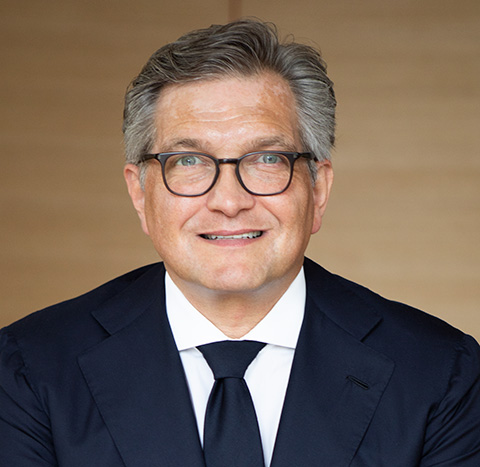
Neurosurgeons by definition have many difficult conversations with their patients. We review scans together and tell them, as gently as we can, that they have a tumor, have had a stroke, or have any one of a number of other conditions that affect the brain and spine. We talk about treatment options, surgical risk, and recovery times, always aiming for the right combination of compassion and candor.
As difficult as those conversations can be, however, there’s one I think is even tougher — and it’s probably not what you think. In my experience, the most difficult conversation we neurosurgeons can have with our patients is the one in which we tell them that we are not going to operate, and that surgery is not the solution.
There are so many things that neurosurgeons — specifically spine surgeons — can do to relieve pain and restore quality of life. We can repair herniated discs, remove tumors, even reconstruct spines affected by deformity or trauma. In so many cases I can review a scan with a patient and say with confidence “this is what’s causing your pain, and I can fix it.” It’s the most gratifying part of my job. The much harder part is recognizing what I can’t fix.
There are several reasons why I sometimes have to tell a patient that surgery won’t help, including:
It’s too soon. We never perform surgery until all other options have been exhausted. If we think we can resolve a patient’s problem with medication, physical therapy, or other means, we will always try those first. Patients don’t always want to hear that, and I understand — when you’re in pain, you want the quickest fix possible. But we’ll never subject anyone to surgery who may do just fine without it. If a few weeks of nonsurgical therapy can make surgery unnecessary, that’s a worthwhile investment.
It’s too risky. The risks of most routine surgeries are small, but they are real. In almost every case, the benefit to be gained from a surgical repair outweighs the tiny risk of the procedure itself. Sometimes, however, the surgical risk is greater than the potential benefit. This sometimes happens when a patient is elderly or has an underlying health condition that makes anesthesia unusually risky, or when solving the immediate problem might risk causing a larger one. I need to know my patients understand the risk of surgery, no matter how small — but when the risk is too large, I need to help them understand why I can’t operate.
It wouldn’t help. Spotting an anomaly on a scan doesn’t mean we’ve found the source of someone’s pain. There are many people whose vertebrae (spinal bones) are imperfect but they have no pain at all. Some people have minor stenosis (compression) or a small deformity, but nothing significant enough to cause symptoms. Ethical surgeons don’t operate to correct an x-ray — we operate to relieve symptoms. It doesn’t help anyone to perform surgery and end up with a perfect spine on a scan, but have a patient who is still in pain. If surgery won’t help a patient, a good neurosurgeon won’t perform it.
I don’t see it. The flip side of that coin is not seeing anything on a scan. The tremendous advances we’ve made in imaging over the past decades have made “exploratory” surgery mostly a thing of the past. When a patient is in pain, but the scan doesn’t reveal a problem I can fix with surgery, I’m not going on a fishing expedition to see if I can find anything wrong. These days it’s highly unlikely that a spine has a correctable problem that doesn’t show up on a scan or in a functional study. If I don’t see a problem that I can repair, I’m not going to recommend surgery.
These answers don’t always satisfy patients who come in for evaluations, only to hear a spine surgeon say no, I’m not going to operate. I understand how terrible it is to be in pain, hoping a surgeon will offer you the solution, only to have that hope taken away. But not all pain can be relieved with surgery, and no ethical surgeon will operate on a patient without a high degree of confidence in the payoff.
Not recommending surgery doesn’t mean we give up — at a multidisciplinary facility like the Center for Comprehensive Spine Care we refer nonsurgical patients to specialists in pain management, rehab medicine, neurology, neuropsychology, or even traditional medicine like acupuncture. We always try to find a solution, even when neurosurgery is not the answer. There is always hope! (See this article about a patient whose solution took time, but we found it! "I Felt Like a Cripple, and I Couldn't Accept That")
Disappointed patients sometimes accuse ethical surgeons of “cherry picking” — of taking only the easiest patients and refusing more difficult ones. This could not be further from the truth, especially at major academic medical centers where we handle extremely complex cases every day. Our criteria for patient selection rest only on the amount of good we can do — as long as we can help, with a reasonable amount of risk, we’ll try. If we can’t help, we’re going to have that tough conversation.